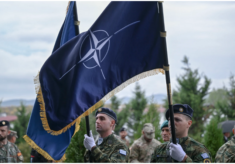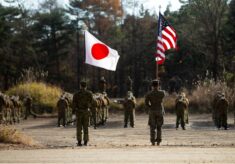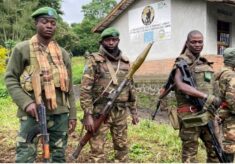When the Kosovo Albanian population was liberated back in 1999, after the NATO military intervention, it only made sense that using some of the war leaders would be the only way to conduct DDR (Disarmament Demobilisation Reintegration) and transition Kosovo from a war zone to a safe and secure area. This was the best option, by far, though not a perfect one admittedly, to create an environment where rebuilding and healing could happen, safely, and cautiously and were lives could start over again.
Today, 20 years after the actual war started, 10 years after independence, Kosovo has greatly changed. It has gone from creating peace to maintaining it and beyond. Kosovo is working hard to develop and be able to meet the needs of its citizens. Despite its progress, Kosovo faces tremendous challenges of socio-economic nature, its human security being very low and societal security disintegrating by the day. Just in the recent years, Kosovo has gone through major bouts of social exhaustion and emigration due to the socio-economic situation, worsened only by the hopelessness that political instability has created and isolation has enforced (due to lack of visa liberalisation).
Kosovo is a young state that with a more functional cycle of lessons learned and some genuine leadership and vision could have already been on the way to improving its efforts to fight informality, corruption and political instability. Nonetheless, under the current conditions, with or without its knowledge, from the lack of implementation of the administrative reforms, all the way to lack of sufficient economic development and ultimately inability to foster an environment conducive of human and societal security and a resilient and active citizenry, Kosovo has already been fighting an uphill battle.
In failing to progress, Kosovo is still in a position where it faces EU imposed visa restrictions, which have created a ghetto-like environment [Global Security, 2017; Coleman, Human security in Kosovo: The other side of National Security? 2016]. Despite the fact that many factors have contributed to the slow progress of Kosovo and the state of human security, a much-overlooked issue has been the political instability and the role of Kosovo’s leadership. The past ten years of political instability have been a direct result of Kosovo’s political leadership. Kosovo today is still lead by the same leadership that was put in place after the war. Such leadership has already proven that it is unable to adapt to the country’s present challenges in order to meet the citizens’ needs. Hence the grave socio-economic situation. It also has proven that it is unable to meet the challenges of the future, holding any significant progress in hostage (lack of progress hindering the possibility for visa liberalization and further progress in other areas of EU integration processes).
It is not a foreign concept to understand that leadership from an era that required survival skills and immediate crisis management in an open conflict/war cannot be a good fit for taking a fledgeling state where it needs to go as it tries to consolidate its institutions, carry out reforms and uproot corruption and white-collar crime. Hence, what has plagued Kosovo, as a result, is political instability, which only perpetuates further instability [Alesina, Ozler, Rubini, & Swagel, 1996], and the vicious cycle of unfinished terms and consequently leadership without a sense of obligation towards their constituency and a vision for progress.
In such a vicious cycle, it is impossible for a country to be well managed, led or even finish any processes. Thu once cannot envision Kosovo getting out of the grave situation it is in, socially and economically. As the country, as a society, tries to move forward to a new era, where human security and social security are the assured effects of new values engrained in a new form of active citizenship and new leadership, it continues to be led by “leaders of the past”. The question remains then, how can Kosovo move to the future, if its leadership structures are held tightly by leaders of the past?
Besa Kabashi – Founder of the strategic consultancy firm B.K.R. & Associates (Pristina)





























